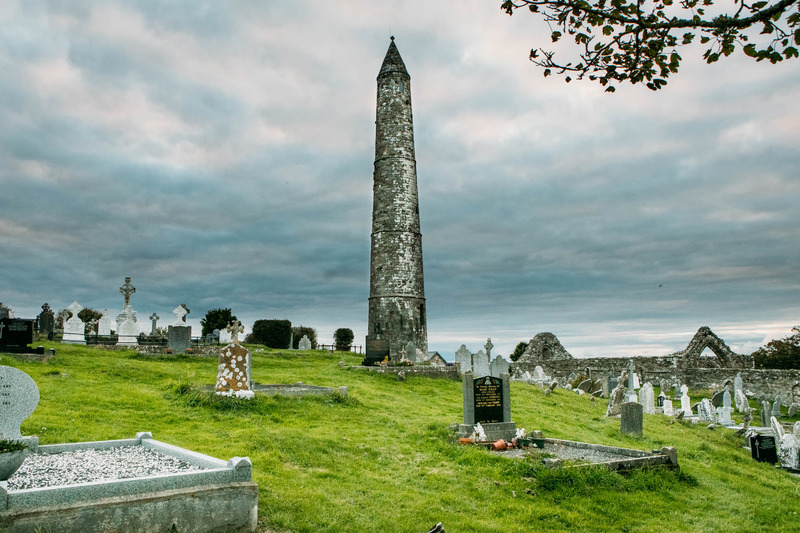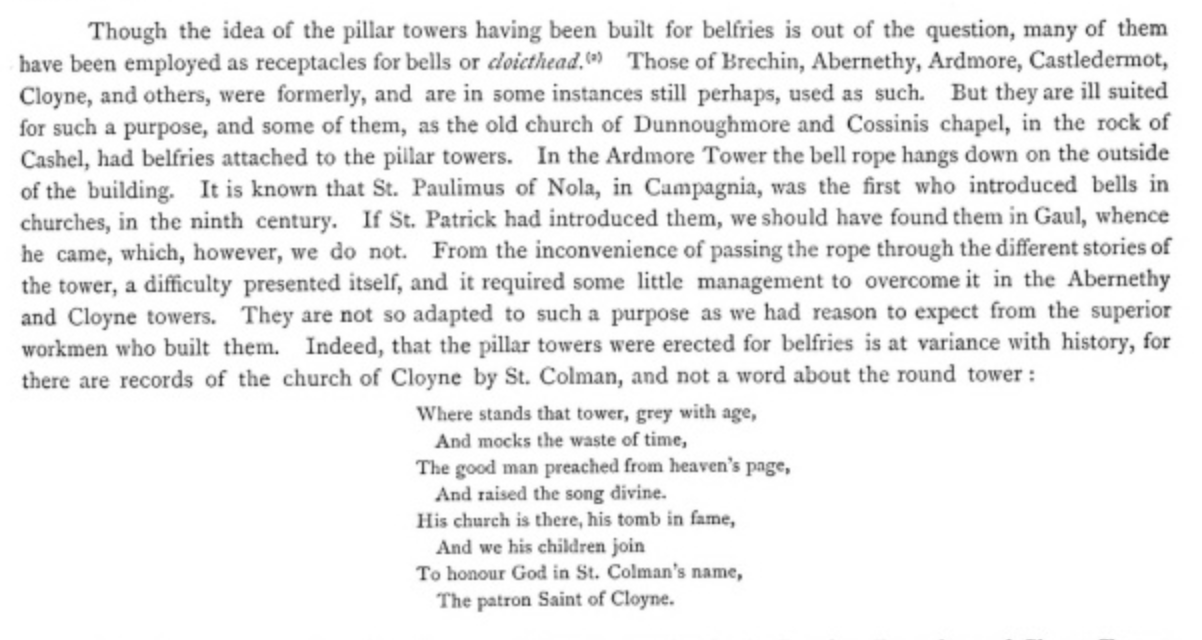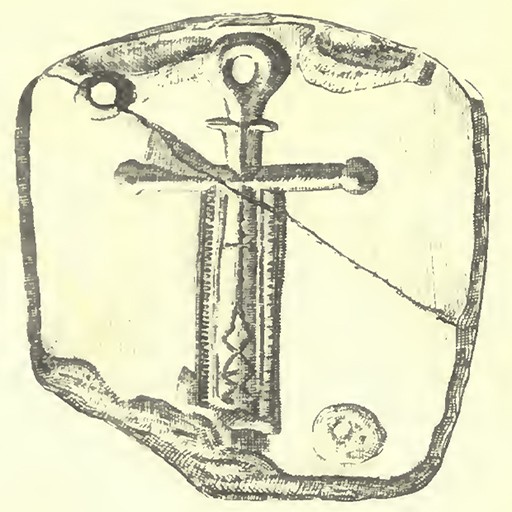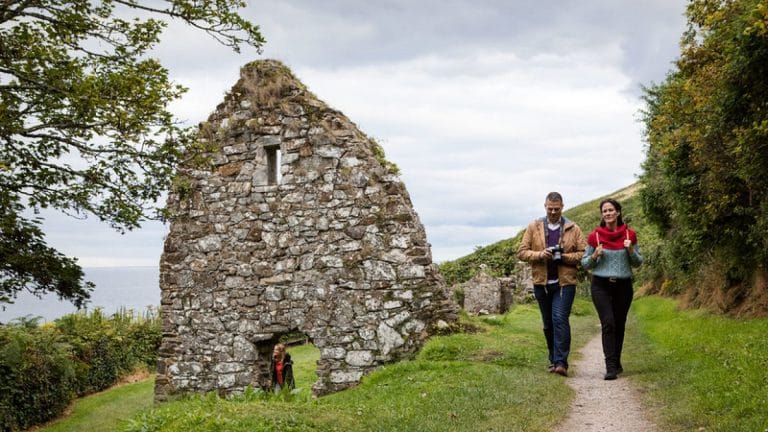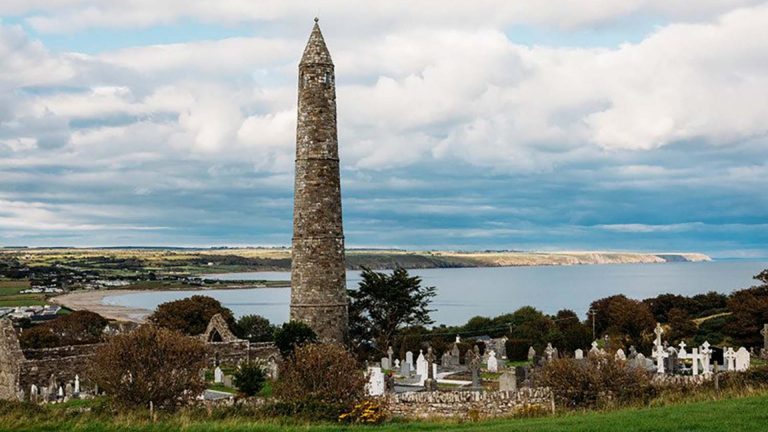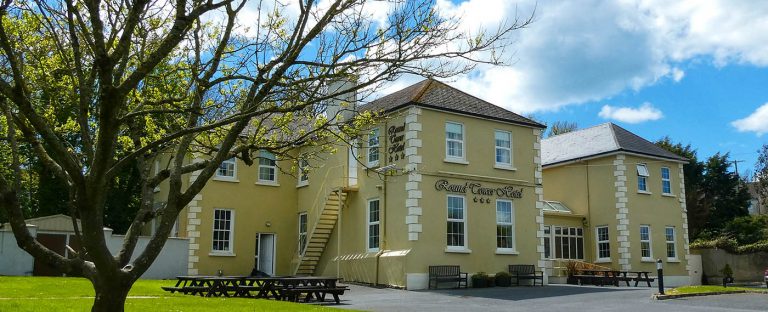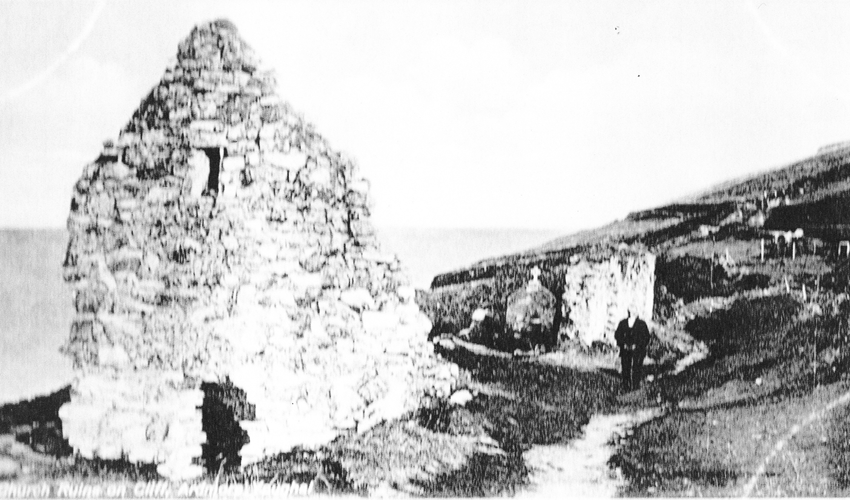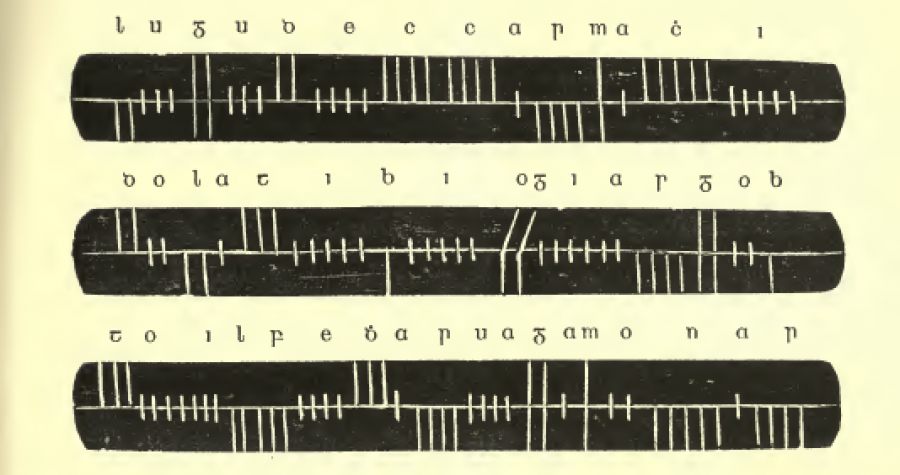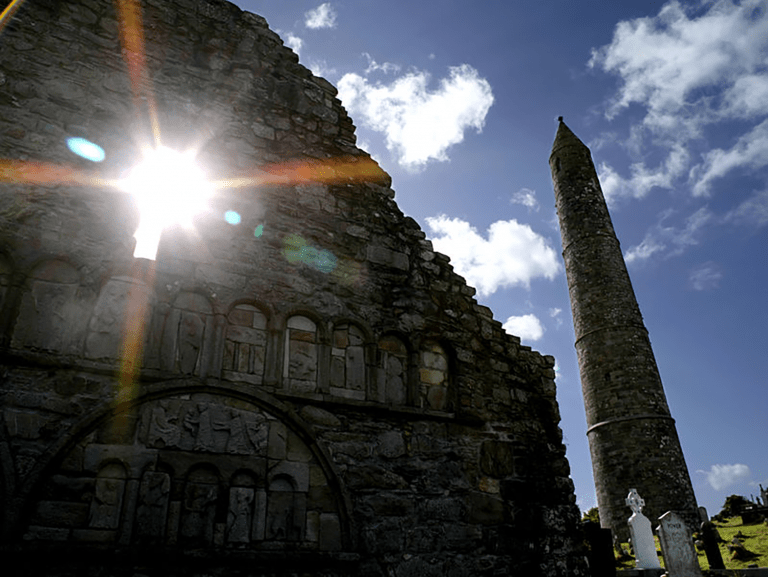Imagine standing at the base of Ardmore’s majestic round tower, gazing at its 30-meter height. As you do, picture the sound of bells ringing across the coastal landscape, calling monks to prayer and warning of impending danger. While we can’t say for sure that bells hung in Ardmore’s tower, the evidence suggests a fascinating possibility.
A Tower Built for Sound
Ardmore’s round tower, constructed in the 12th century, is one of Ireland’s finest examples of these iconic structures. While their primary purpose was defensive, serving as a refuge for monks and their treasures, many believe they also functioned as bell towers[1][3].
The tower’s unique features hint at its potential as a belfry:
- Four windows at the top, facing the cardinal directions, perfect for projecting sound[2]
- Internal supporting corbels, some carved with grotesque faces, which may have supported a bell-hanging structure[2]
The Mystery of the Missing Bell
Intriguingly, local legend speaks of St. Declan’s bell, said to have miraculously floated across the sea on a stone. While this bell’s fate remains unknown, it adds to the mystique surrounding Ardmore’s potential for bell-ringing[3].
A Pan-European Trend
Recent scholarship suggests that Irish round towers were part of a broader European fashion for bell towers in the 12th century[1]. This theory lends credence to the idea that Ardmore’s tower may indeed have housed bells.
Echoes of Conflict
The tower’s history includes a dramatic siege in 1642, where English troops attacked a garrison sheltering inside. One can almost hear the frantic ringing of warning bells as the attack commenced[3][4].
While we may never know for certain if bells once rang out from Ardmore’s round tower, the possibility adds another layer of fascination to this already remarkable structure. As you visit, let your imagination fill the air with the ghostly peals of ancient bells, connecting you to centuries of Irish history and spirituality.
Citations:
[1] https://historicgraves.com/story/ardmore-round-tower
[2] https://heritageireland.ie/unguided-sites/ardmore-cathedral-round-tower-and-oratory/
[3] https://www.ardmorewaterford.com/be-moved-by-the-beauty-of-ardmores-round-tower/
[4] https://www.ardmorewaterford.com/the-round-tower-ardmore/
[5] https://curiousireland.ie/ardmore-roundtower-ardmore-county-waterford-10th-12th-centuries/
[6] https://en.wikipedia.org/wiki/St._Declan’s_Monastery
[7] https://www.discoverireland.ie/waterford/ardmore-round-tower-and-cathedral
[8] https://visionsofthepastblog.com/2017/10/03/ardmore-cathedral-and-round-tower-waterford-ireland/
Did A Lonesome Bell Ever Ring Out Over Ardmore Bay?
For any visitor to Ardmore, there’s a historic presence forever in your heart.
And there’s no better way to understand the past than by walking around the historic sites of Ardmore.
Most visitors soon find that no structure strikes more of a chord with visitors than the Round Tower of Ardmore, especially as it looms large over the skyline of this wonderful village.
Many have also pondered the purpose of the Tower. Some have even speculated whether there used to be anything contained within the Tower.
For example, in the Tour In Ireland, (1806) printed By William Savage, Bedford Burt there is some additional discussion on whether there was a bell in the tower.
The same author observes, in his History of Waterford, “that the Round Tower at Ardmore, had been used as a belfry, as a part of the oak beam remained from which the bell was suspended; and that two channels were cut in the cill of the door, where the rope came out; and thus the bell was sounded by the ringer, who stood below on the outside of the doorway.”
In the first volume of the English Archaeologia, is a dissertation, (with a view) on the Round Tower of Ardmore, by Peter Collinson, which is little more than a repetition of the remarks made by Dr. Smith. This paper is answered in the second volume of the same work, by Owen Salusbury Brereton, Esq. who says, “When I lately made the tour of the south-west parts of Ireland, I saw several of these buildings, called usually Penitential Towers; not one of them had either belting or girting, nor the least sign of their having been any room in them, till within ten feet of the top: that room had windows exactly facing the cardinal points; from thence, downward to the entrance, which is about fifteen feet from the surface of the ground, only a few slits were cut, just to give light to persons going up and downstairs.” This author thinks them to be of Irish construction, but prior to the use of bells.
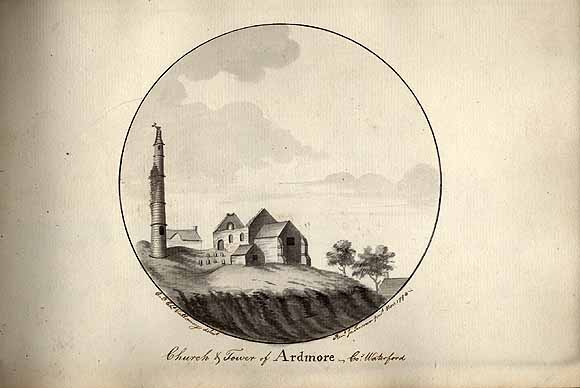
In the History of paganism in Caledonia, with an examination into the influence of Asiatic philosophy, and the gradual development of Christianity in Pictavia by Thomas Alexander Wise (1884) there is further discussion on the Round Tower in Ardmore.
He continues to discuss other aspects of Towers and ritual:
